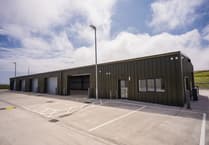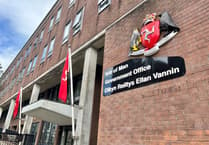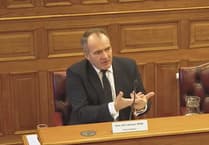The Treasury Minister Dr Alex Allinson has withdrawn plans to scrap entitlement to a key benefit for those who are self-employed.
Proposals were put before Tynwald last week which would’ve seen self-employed people in the island being no longer able to claim Employed Person’s Allowance (EPA).
EPA is an income-related social security benefit which is paid to families and disabled workers who are employed for at least a minimum number of hours each week.
The number of required work hours depend on personal circumstances and children's ages, while the amount payable is based on family make up, housing and childcare costs, and income.
While eligibility for employed individuals is based on verified earnings and hours worked, self-employed claims rely on reported profits which are often unverifiable due to cash-based income and untracked hours.
Under the proposals that went before Tynwald, no new self-employed claims were to be accepted from September 1, while existing claimants would retain eligibility for up to 12 months.
The proposal led to a 55-minute debate in this month’s Tynwald sitting, with this culminating in Dr Allinson withdrawing the motion.
The Treasury Minister acknowledged the concerns raised by other MHKs and vowed to ‘reconsider the changes with more compassion and consultation’.
Closing out the debate, Dr Allinson said: ‘I completely understand that with the various, sometimes complicated, lives that people in our community lead, they do need that extra help.
‘I'd like to thank honourable members for their comments as well, who called for going back and looking for an alternative and revised scheme for making reforms to the benefit system for the benefit of all the people in our island.
‘I'd like to take those comments back to the department, withdraw this motion, and come back with something that responds both to the needs of our people and the needs of this court.’
During the debate, Douglas East MHK Joney Faragher raised concerns that that the proposed changes would unfairly penalise working people, especially those with mixed employment.
She said: ‘If someone works 20 hours a week in employment and supplements their income with 10 hours of self employed work, perhaps as a cleaner or delivery driver, they could now be excluded from claiming EPA entirely.
‘This is a fundamental shift in how we treat working people on low incomes.
‘This change risks unfairly penalising those who are doing exactly what we say that we want people to do - working, contributing, and trying to make ends meet, even in insecure or mixed forms of employment.’
Employed Person’s Allowance is currently paid to around 950 people.
Of these, 52 people are wholly or primarily engaged in self-employed earner’s employment. Between them, they receive EPA worth around £500,000 per year.
Based on the current self-employed cohort in the island, the average amount paid to a claimant is £193.96pw, or just over £10,000 a year.
Concerns were also raised in the latest Tynwald sitting that those directly impacted by the change had not been properly consulted about the issue.
Legislative Council member Dawn Kinnish also highlighted how the change disproportionately impacts women, with roughly 700 - three quarters - of total EPA claimants being females.
‘I know that two claimants with disabilities were engaged with,’ she said. ‘But I understand that the remainder, nearly all women, were not engaged with.
‘Had engagement taken place, it would have given claimants an opportunity to comment, and that commentary could have been included in the equality impact assessment.
‘That, to me, is a missing component where I have concerns.’
The change was proposed by Treasury as it said there was no way of accurately verifying how much self-employed claimants are earning or how many hours they are working, as all of this is self-declared.
However, Dr Allinson did emphasise in June that the Treasury was not accusing self-employed people of lying about their incomes.
‘This is not a measure targeting the self-employed,’ he said.
‘It is addressing a small problem with those who are self-employed but earn so little through this that they are claiming benefits which indirectly are supporting their business.
‘EPA is essentially supporting 52 small businesses currently, which on the face of it cannot, and most likely will not, provide those operating them with an income which is sufficient to maintain them and their families. Social Security officers believe that it is inappropriate.’
Speaking about the future plans for EPA reform to Manx Radio, Dr Allinson added: ‘What we need to do is understand the individual circumstances of those people claiming EPA, who are on very low wages through self-employment.
‘We need to help them increase those wages, develop their business models, or help them through upskilling to actually get back into full time employment, because we know that there are vacancies out there.
‘We know that more people are working from home, and there's more flexibility in terms of the hospitality industry and the retail sector.
‘We need to try and make sure that everyone in the island benefits from the growth in our economy.’
.jpeg?trim=0,0,0,320&width=752&height=501&crop=752:501)



